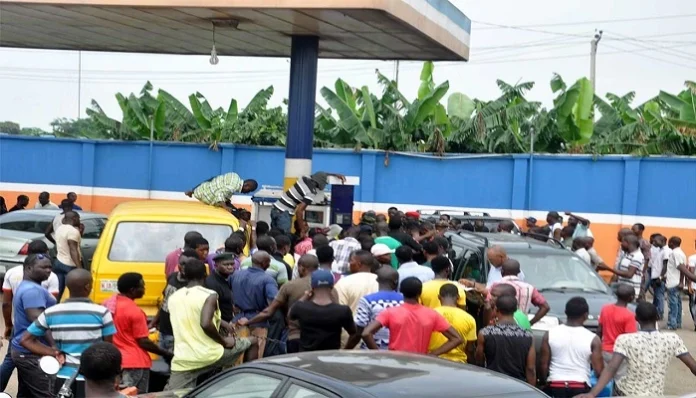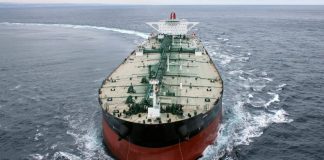Oil marketers in the country, have blamed the fuel scarcity in Lagos on the 163% hike in the cost of renting daughter vessels to move products from mother vessels.
According to the marketers, the hike had significantly reduced the purchasing power of many dealers.
BizWatch Nigeria understands that since Tuesday, November 22, 2022, motorists have been spending hours in filling stations across Lagos State, queuing to buy petrol.
The situation was worse in Ikeja, Ikosi-Ketu, Maryland, and the Iju-Ishaga area of Lagos.
Queues were also reported along the Alausa Secretariat road, as the NNPC (former Oando) was closed to motorists. The same situation was also noticed at Total filling stations in Ojota and Palm Grove.
Stations such as Mobil and Fatgbems along Berger also had long queues and sold at N200 per litre.
Long queues were also reported at Lekki.
Heyden filling station at Ilupeju, though sold fuel, had a long queue of vehicles waiting to buy the product.
Revealing why long queues were seen at different filling stations in the state, the National Public Relations Officer, Independent Petroleum Marketers Association of Nigeria (IPMAN), Chief Ukadike Chinedu stated: “Talking about Lagos, that is where most of the (PMS) vessels come. When the mother vessel comes into Lagos, its products will be distributed by daughter vessels to ports in Lagos, Warri, Port Harcourt, etc.
“These daughter vessels are hired by independent private tank farm owners or private depot owners, who pay vessel charges in dollars. Some of them source dollars in the open market. So, the dollar also determines the price of products.
“Now, you cannot expect them to sell PMS at N145/litre when the price of hiring a vessel has risen from $38,000 to around $108,000 to $111,000, depending on the level of the vessel. These charges are paid in dollars.”
“The rate to charter daughter vessels to move products from the mother vessel to the PDOs has jumped within months due to issues around the hike in diesel cost, foreign exchange concerns and other industry problems.
“The products are moved to PDOs in Port Harcourt, Warri, Calabar, Lagos, etc, and by the time NNPC gives depots allocations, it becomes their responsibility to charter vessels that will take the products from the mother vessel to the depots.
“So, that lack of purchasing power in terms of sourcing dollars to evacuate products from the mother vessel and that little period that the NNPC cannot cope with will continue to bring in ghost scarcity,” the oil marketers chief added.











